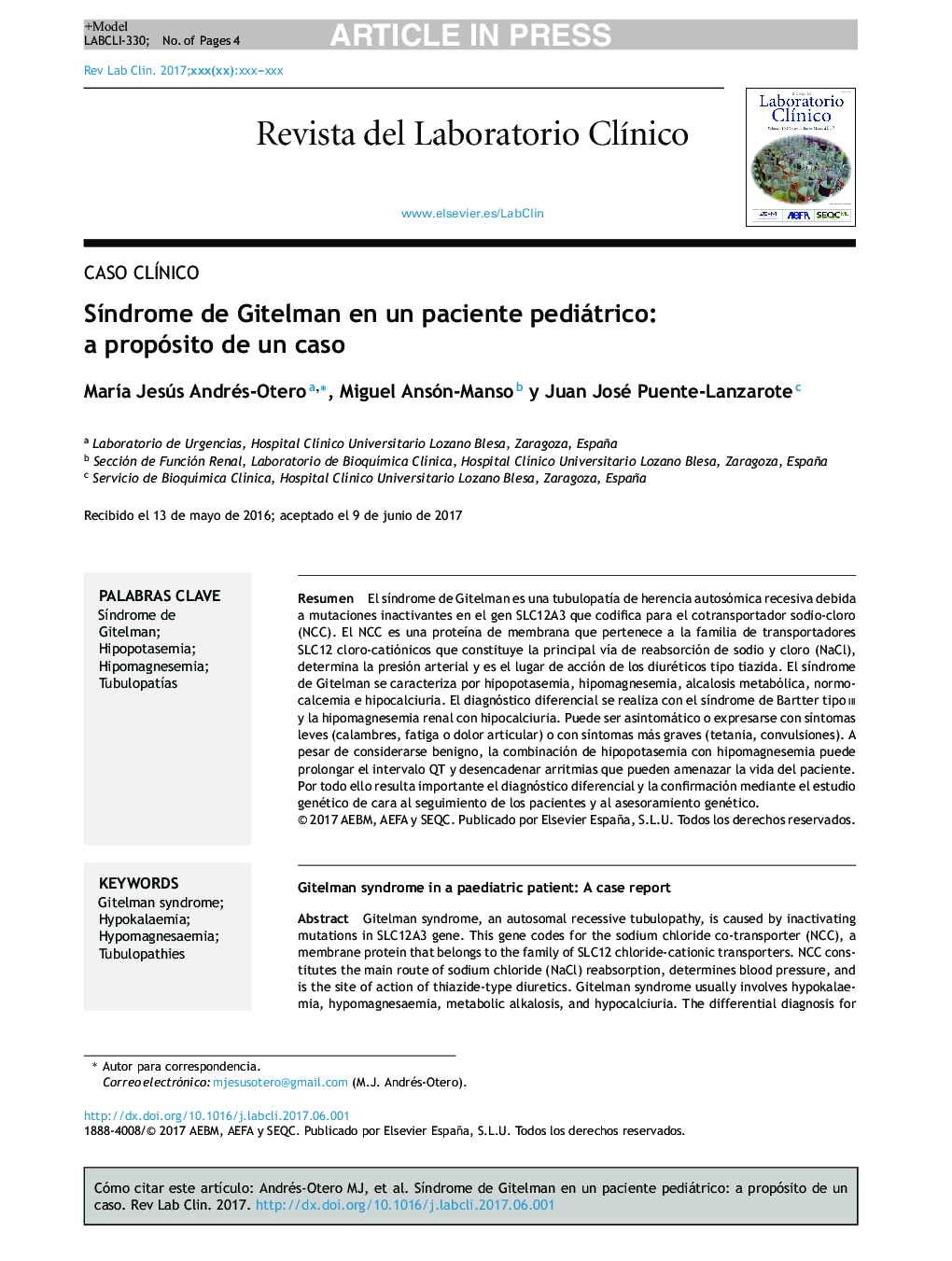| Article ID | Journal | Published Year | Pages | File Type |
|---|---|---|---|---|
| 8543930 | Revista del Laboratorio Clínico | 2017 | 4 Pages |
Abstract
Gitelman syndrome, an autosomal recessive tubulopathy, is caused by inactivating mutations in SLC12A3 gene. This gene codes for the sodium chloride co-transporter (NCC), a membrane protein that belongs to the family of SLC12 chloride-cationic transporters. NCC constitutes the main route of sodium chloride (NaCl) reabsorption, determines blood pressure, and is the site of action of thiazide-type diuretics. Gitelman syndrome usually involves hypokalaemia, hypomagnesaemia, metabolic alkalosis, and hypocalciuria. The differential diagnosis for Gitelman syndrome includes Bartter syndrome type iii and renal hypomagnesaemia. Symptoms reported in the literature range from asymptomatic, to mild symptoms of cramps and fatigue, to severe manifestations such as tetany and seizures. The prognosis is generally good, but a few patients with hypokalaemia and hypomagnesaemia may have a prolonged QT interval and trigger potentially life-threatening arrhythmias. Thus, genetic testing is important to confirm the diagnosis, as well as in the follow-up of patients.
Keywords
Related Topics
Life Sciences
Biochemistry, Genetics and Molecular Biology
Clinical Biochemistry
Authors
MarÃa Jesús Andrés-Otero, Miguel Ansón-Manso, Juan José Puente-Lanzarote,
